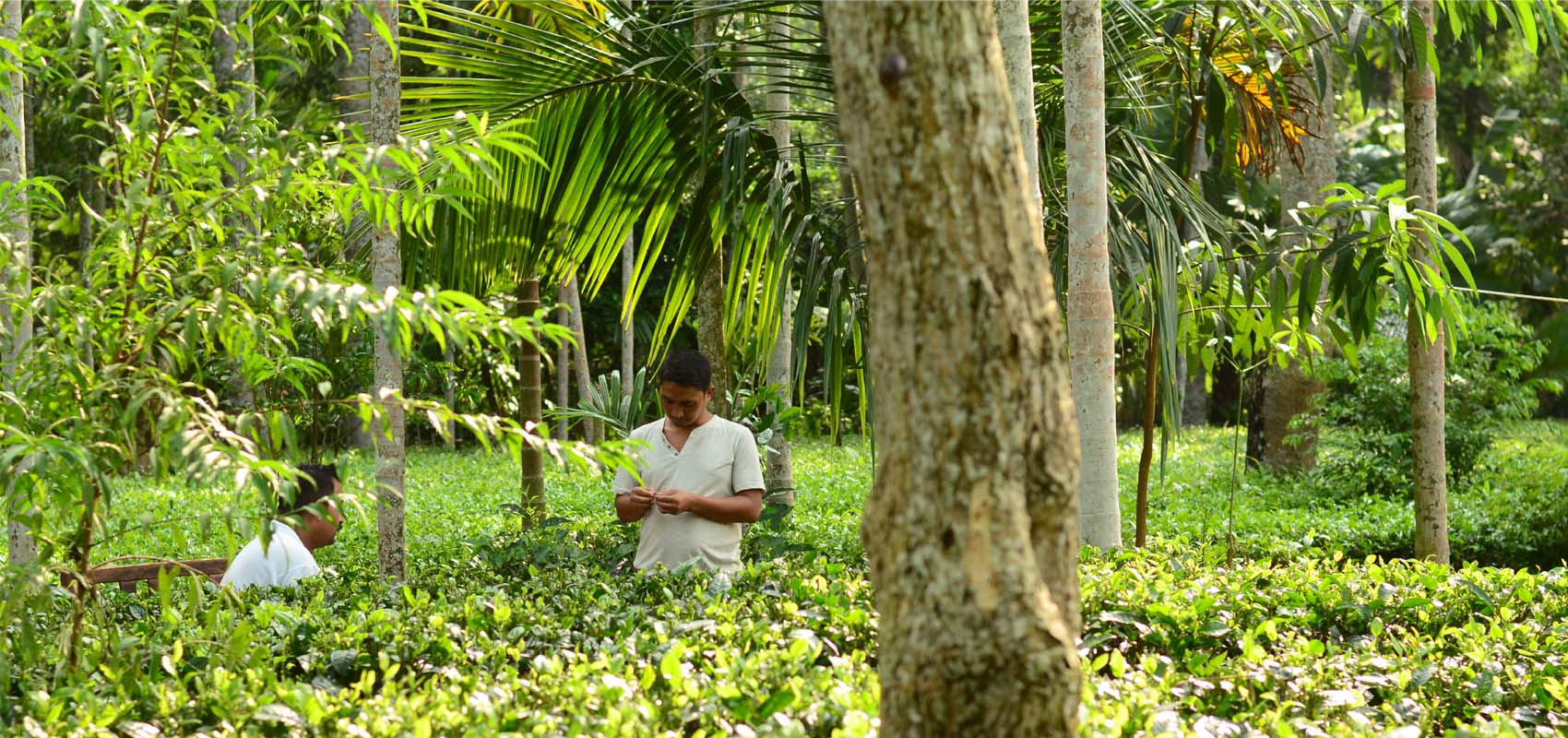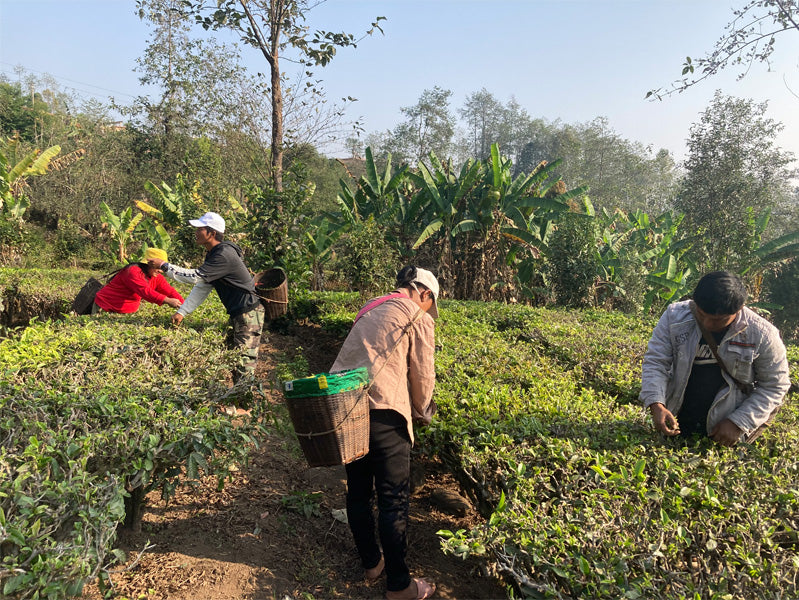Article: Latumoni Tea Estate

Latumoni Tea Estate
We first sourced a tea from Latumoni in mid 2020, during the Covid-19 pandemic. This was a period where India was experiencing local lockdowns in various regions, making it particularly difficult to export trade in and out of the country for us. It seemed that every time our order from Latumoni started to make progress, it went into another locked down region, where it would sit for weeks until the virus rates had eased a little. After a long wait, you can imagine how happy we were to receive our delivery of 2 teas from Latumoni! We purchased a classic Assam black tea and an 'oolong' styled tea, which we initially tasted earlier on in 2020.

Latumoni is a small, family run estate located in Assam, India. It was started by Mr Phukan; a first generation tea crafter. He originally sold his picked broad-leaf Assamica tea leaves to inorganic CTC production factories located nearby. However, the local factories would sometimes not need his leaves, as they were surplus to requirements. The inconsistent income was not ideal for supporting Mr Phukan's family. As a sideline to this, Mr Phukan would also sell small batches of pan fried green teas. This style of tea is relatively uncommon in Assam - and it is even more uncommon to find such a good quality one!

In 2015, with the help of a 'micro wholesaler' who specialises in small batch teas, Mr Phukan has been able to set up Latumoni as a experimental station and micro processing unit. There was not a strategy in mind when the two parties started working together. The only goal was to create exceptionally high quality tea that would provide a sustainable source of revenue to care for a tea grower and his family.

The garden workers were hesitant about the changes being made to turn Latumoni into a speciality tea producer. They were used to plucking 20-30 kilos of tea per day, knowing that the more tea that they picked, the more they would be paid. The new normal was to perform a more delicate picking, removing only the finest leaves from the plants. Picking with such care could only yield between 3-5 kilos per day.

Experimentation happened through 2017 and 2018 - and with limited funding the project seemed doomed to fail at times. In fact, in its earlier years, the project went through hundreds of test batches of processing tea before they were close. The gardens were also being farmed organically, adding an extra level of difficulty to production. Without the use of artificial pesticides, the gardens were susceptible to infestations of insects. Organic accreditation was not (and still isn't) a cost that they can afford to pay, however the garden is committed to organic production.

However, the hard work of Mr Phukan and the micro wholesaler paid off. Their sustainable and natural farming techniques, as well as reviving the natural ecology of the tea garden helped to control unwanted pests. The batches of tea they were producing were starting to receive widespread acclaim from tea traders and merchants across the world. By the end of 2018, they were able to sell almost their entire stock of tea produced that year. It is safe to say that Mr Phukans goal to produce exceptional quality teas had been achieved.

The tea he has produced with the help of the micro wholesaler over the past 3 years is considered some of the finest produced in Assam. It has afforded Mr Phukan a steady income and even the possibility to invest in a proper education for his children.
We hear far too much about the injustices of the tea industry, with garden workers or producers being paid a pittance for their work by the large corporations who control the price of a commodity product. However, Mr Phukan's story is one of the rare occasions where we witness just how good things can can be when the industry gets it right. It's a success story if ever I heard one!

